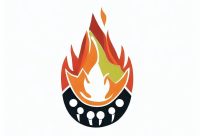The Chimakuan Language Family
An Overview of a Pacific Northwest Linguistic Legacy
The Chimakuan language family is a small, yet historically significant group of indigenous languages spoken in the Pacific Northwest region of North America. Although the number of native speakers has dwindled over time, the linguistic and cultural impact of these languages remains an important part of the region’s history. In this article, we will explore the origins, characteristics, and status of the Chimakuan language family.
Origins and Geographic Distribution
The Chimakuan language family is native to the Olympic Peninsula in the present-day state of Washington. The family comprises two closely related languages, Quileute and Chemakum (also known as Chimakum). These languages were spoken by the Quileute and Chemakum peoples, who were primarily fishermen and hunters inhabiting the coastal areas and river valleys of the Olympic Peninsula.
Linguistic Features
The Chimakuan languages are typologically unique and possess several distinct linguistic features. They are characterized by a complex system of verb inflection, with numerous affixes denoting tense, aspect, mood, and voice. The languages have a rich system of consonants, including a series of ejective stops and uvular fricatives, which lend them a distinct sound.
In terms of syntax, Chimakuan languages display a flexible word order, with a preference for subject-object-verb (SOV) structures. They also employ a rich system of nominal classifiers and a well-developed system of evidentiality, which helps speakers convey the source of information they are providing.
Status and Revitalization Efforts
Unfortunately, like many indigenous languages around the world, the Chimakuan languages have experienced a significant decline in the number of speakers over the past centuries. The Chemakum language became extinct in the early 20th century, while the Quileute language is currently classified as critically endangered, with only a few fluent speakers remaining.
The decline of the Chimakuan languages can be attributed to several factors, including colonization, forced assimilation, and the introduction of English as a dominant language. As a result, the Quileute and Chemakum peoples experienced cultural disruption and loss of linguistic identity.
In recent years, however, there has been a resurgence of interest in preserving and revitalizing the Chimakuan languages. Local organizations, such as the Quileute Tribe, have initiated language revitalization programs, aimed at documenting the languages, developing learning materials, and promoting language use among younger generations.
These efforts have led to the creation of bilingual educational programs, language immersion camps, and community-based workshops, which aim to engage the community in language learning and cultural preservation. With the help of dedicated linguists, educators, and community members, there is hope that the Chimakuan languages can be revitalized and preserved for future generations.
The Chimakuan language family, while small, has played a vital role in the cultural and linguistic landscape of the Pacific Northwest. As efforts to revitalize and preserve these unique languages continue, it is crucial that we recognize and appreciate the rich heritage and cultural significance that the Chimakuan languages hold. Through ongoing support and collaboration, it is possible to ensure the survival and growth of these languages, contributing to the diverse tapestry of linguistic traditions in North America.

